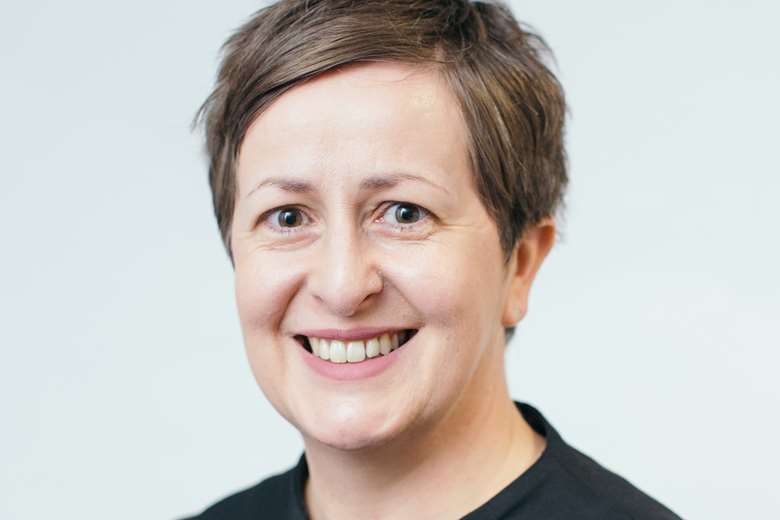Allowing children to leave kinship care and enter the care system won’t just cost us money, it will be morally bankrupt
Lucy Peake
Monday, October 2, 2023
Today, on the first day of Kinship Care Week, Kinship has published new research indicating that more than 19,000 vulnerable children across England and Wales, currently being raised by relatives or family friends, are at immediate risk of entering the care system, as kinship carers struggle to cope without adequate financial support.

Over a quarter of the 1,600 kinship carers surveyed for Kinship’s report, Breaking point: kinship carers in crisis, said they were ‘facing severe challenges’ or ‘at crisis point’, with 12 per cent reporting they may actually have to stop caring for their kinship child within the next year unless their circumstances change.
Unlike foster carers, most kinship carers do not receive a financial allowance from their local authority to provide for the child in their care. Those who do receive a monetary allowance are subject to a ‘postcode lottery’ of support payment amounts, as well as regular means-testing, which often penalises older carers for having pensions or savings pots.
Perhaps the new figures aren’t as shocking to those of us working in children’s social care as they are to the rest of the country. We know all too well the sting of the cost of living crisis to families in lower income areas. Kinship’s advice line and project workers regularly receive calls from carers in circumstances similar to the one in 10 surveyed who had run out of food within the past fortnight and couldn’t afford to buy more. Social workers reading this may have ample experience of the 18 per cent of kinship carers who told us they were unable to take in the sibling of a child already in their care, primarily because of financial circumstances.
Gemma (whose name we have changed), a 52-year-old former pub-manager told us about how much life had changed for her since she took on the care of her granddaughter seven months ago. Having quit her job to facilitate a hefty school run to another borough, as well as to cover her granddaughter’s care during the summer holidays, she is now on universal credit and behind on rent. She struggles to cover the cost of petrol and the pair regularly run out of food. To pay for school uniform, she went to a pawn shop and sold all her jewellery.
“We’ve had absolutely no support from anywhere” she told us. “I was told that I’m not entitled to anything, because as soon as I took her in, it became a ‘family arrangement.’”
Gemma isn’t just worried about putting food on the table, but the impact that the lack of support is having on her granddaughter’s mental health. “She’s just stuck in the house…I wish she had access to after-school activities like a foster child, so she had something to look forward to each week.” Heartbroken to even consider it, Gemma has wondered whether her granddaughter would have a better start to life in the care system, where at least she might be able to access therapeutic support, or enjoy the occasional day trip.
We know, however, that Gemma’s granddaughter, and the hundreds of thousands like her, being raised by a grandparent or other relative, are receiving something unquantifiable by staying within their family network. Unconditional love, the connection to wider family or community, the stability of a ‘forever home,’ along with a safety net of support that will be there long past their 18th birthday, are just some of the factors that result in young people raised in kinship care having better outcomes than their counterparts who grew up in foster and residential care. For those working with vulnerable young people, ensuring that children who could live with a loving family member or friend have the support in place to do so is, therefore, not just a wise way of reducing impossible social work caseloads and preventing an overstretched care system from bursting at the seams, it is also a moral imperative.
Allowing this group of children to drift into the care system is wholly avoidable. In fact, according to the Independent Review of Children’s Social Care, equalising financial allowances between kinship and foster carers would start saving the public purse a significant sum, within just a few years.
We’re at a critical point. Waiting any longer risks tens of thousands of children entering a care system that doesn’t have room or resource for them, as well as loving families being ripped apart. The Government must commit to non-means-tested financial allowances for all kinship carers, regardless of their court order or postcode, within its National Kinship Care Strategy, due to be published by the end of 2023. Local authorities meanwhile, do not need to wait for legislation in order to do the right thing and allocate additional budget to support children in kinship care – by providing allowances and investing in tailored support for kinship families, like Kinship Connected. It will save them money in the long run. Some decision makers are already starting to take action, thanks to the tireless campaigning of kinship carers, who we stand proudly alongside through Kinship’s #ValueOurLove campaign, and who I know will not rest until enough support is available for every kinship family.
Find out more about Kinship’s #ValueOurLove campaign and support services for kinship carers at kinship.org.uk
Dr Lucy Peake is chief executive of national charity Kinship




